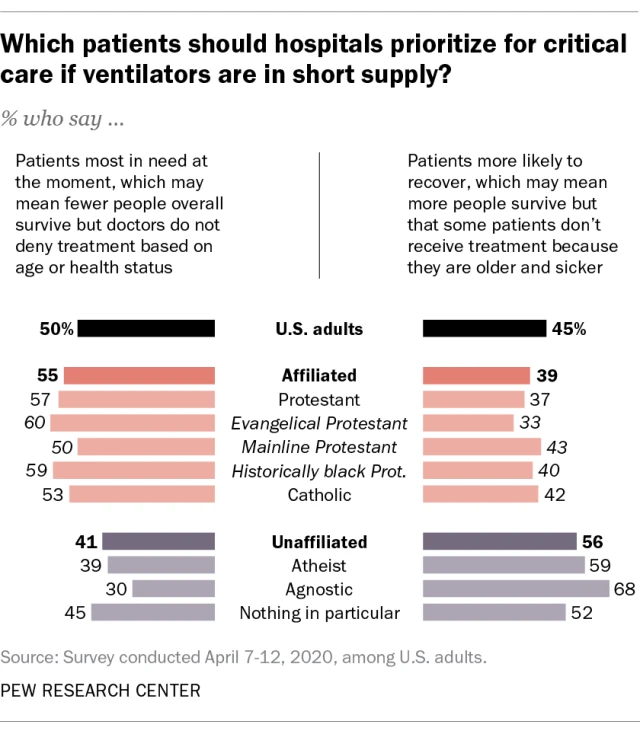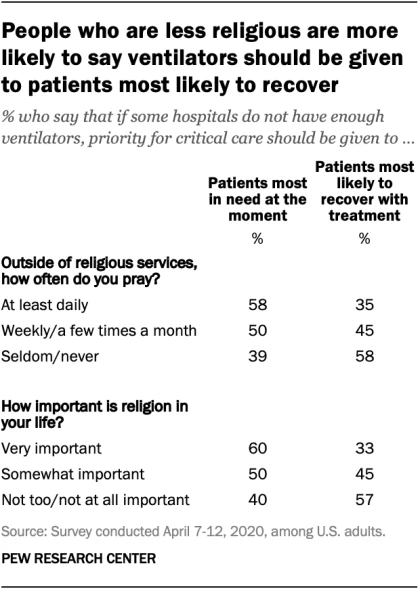As states raced to increase their supplies of medical equipment, and news articles and protocols on strategies for dealing with shortages circulated, we gauged public opinion on the issue and found stark differences based on religion. Quick summary thread: https://www.pewresearch.org/fact-tank/2020/04/24/americans-are-divided-by-religion-on-who-should-get-critical-care-if-there-is-a-shortage-of-ventilators/">https://www.pewresearch.org/fact-tank...
When asked whether, in the event of a dire shortage, ventilators should go to patients more likely to recover, to maximize the number of lives saved, or to those most in need at the time, the unaffiliated were the only group with a majority favoring a utilitarian approach.
People who pray the most and those who say that religion is very important in their lives are also much likelier than their less religious peers to prefer a more first-come, first-served approach that would avoid denying anyone aggressive treatment based on age or health status.
This is consistent with a lot of other research on religion and moral decision making. Non-religious people are more likely to rely on utilitarian calculus partly because they don& #39;t have a shared set of formal moral rules like those provided by religions. https://www.researchgate.net/publication/262142673_Morality_and_the_Religious_Mind_Why_theists_and_non-theists_differ">https://www.researchgate.net/publicati...

 Read on Twitter
Read on Twitter



